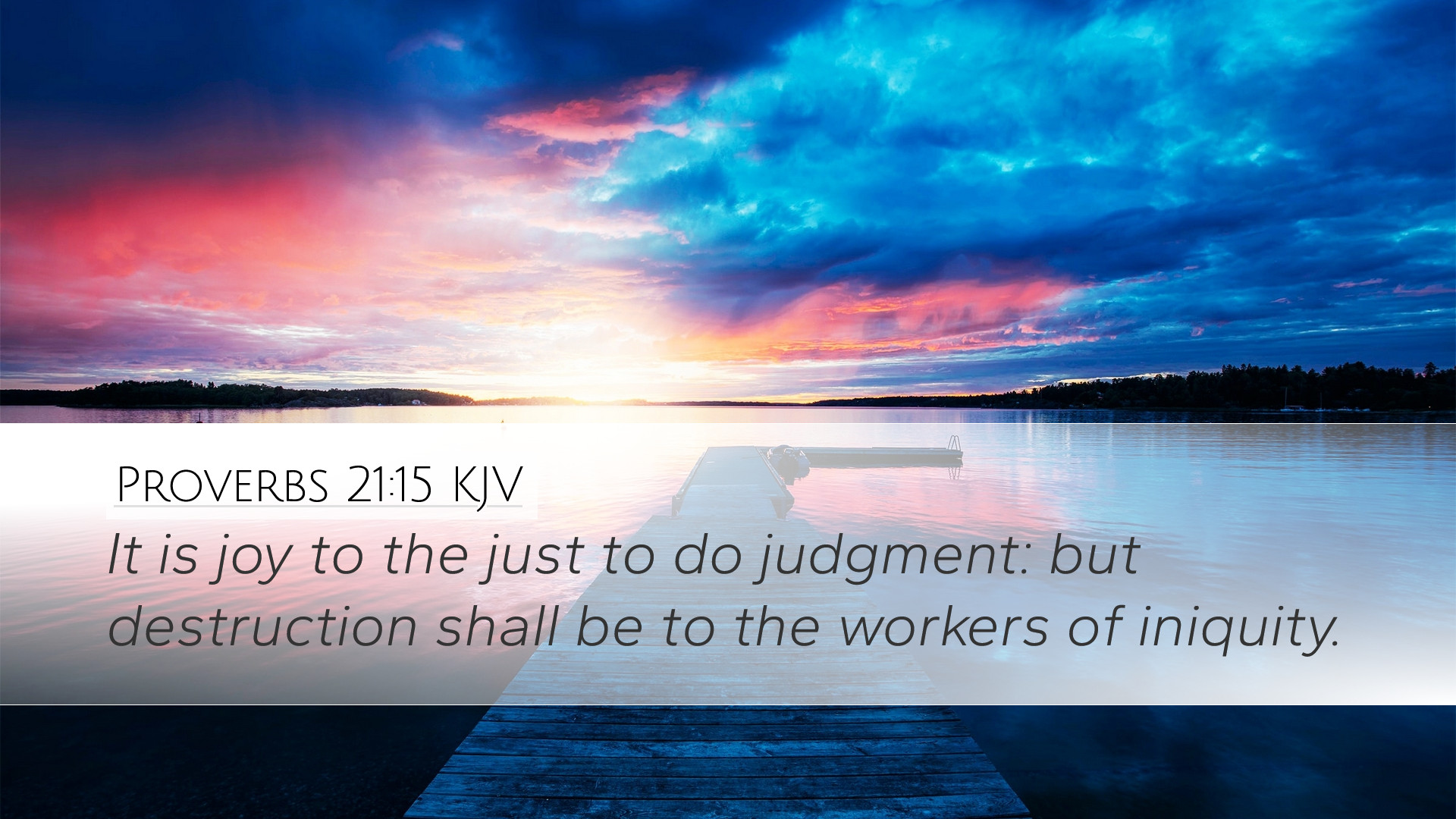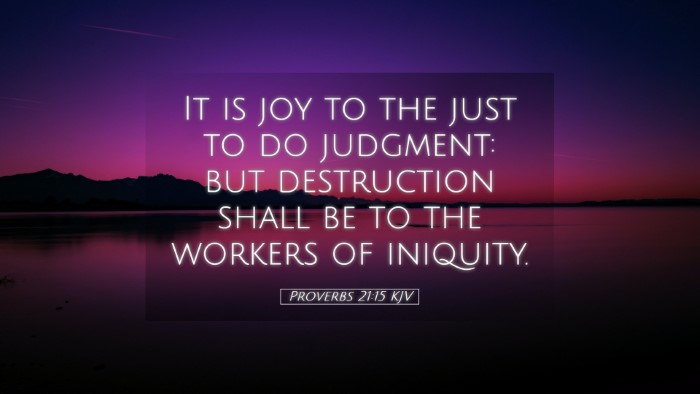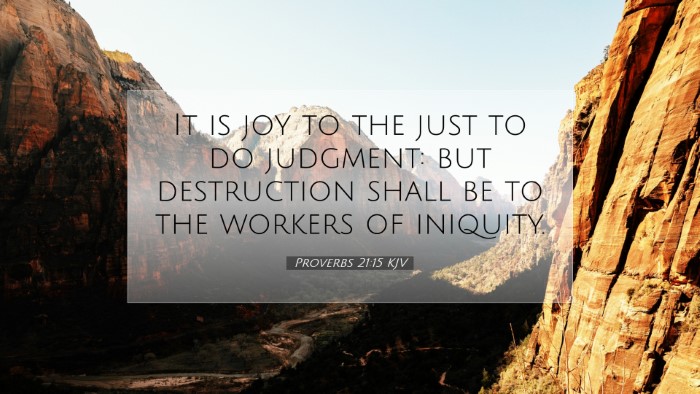Commentary on Proverbs 21:15
Proverbs 21:15 states: "It is joy to the just to do judgment: but destruction shall be to the workers of iniquity."
Introduction
This verse presents a juxtaposition of the joy experienced by the righteous in carrying out justice and the destruction that awaits those who engage in wickedness. Such contrasts are common in the Book of Proverbs, which often advocates for the ways of wisdom versus folly.
Insights from Matthew Henry
Joy in Justice: Matthew Henry emphasizes the happiness and satisfaction found in justice among the righteous. He notes that this joy comes from a sense of duty fulfilled and a conscience aligned with God's standards.
- Reflection of God's Character: The just reflect God's nature, who is fundamentally just and righteous.
- Social Order: The establishing of justice leads to social harmony and the overall wellbeing of a community.
- Inner Peace: The motivator for the just is not external accolades but the internal peace that God’s approval brings.
Insights from Albert Barnes
Albert Barnes brings forth the interpretative aspect of this verse by focusing on the 'destruction' of the workers of iniquity.
- Punishment of Evil: Barnes explores the inevitable punishment that follows the path of injustice, highlighting the moral order established by God.
- Ultimate Accountability: He argues that all unjust actions will ultimately face accountability, affirming the biblical principle that one reaps what one sows.
- Contrasting Outcomes: The outcomes for the just and unjust serve as a lesson; while righteousness leads to joy, wickedness leads to despair.
Insights from Adam Clarke
Adam Clarke provides a more theological interpretation of this verse, stressing the comprehensive impact of justice and righteousness in society.
- God's Ordinance: Clarke notes that justice is not merely a human construct but an ordinance of God, designed to maintain His creation.
- Thirst for Justice: He highlights the idea that the just crave justice, finding it to be a source of profound joy that aligns with divine will.
- Contrast in Characters: Clarke emphasizes the marked difference between the character and ultimate fate of the just versus the wicked, further underscoring the moral implications of one’s choices.
Theological Implications
The examination of Proverbs 21:15 through these commentaries reveals deep theological implications regarding justice, morality, and the nature of God:
- Divine Justice: Understanding that God is just provides reassurance to believers that their pursuit of righteousness is aligned with His character.
- Human Responsibility: The verse calls for a recognition of human agency and the choices that lead to either joy or destruction.
- Community Impact: The actions of the just contribute not only to personal joy but also to the social fabric of communities, promoting harmony and justice.
Practical Applications
For pastors, students, theologians, and Bible scholars, Proverbs 21:15 offers several practical applications:
- Encouragement to Pursue Justice: Encourage communities to pursue justice fervently, reflecting God's character in actionable ways.
- Holistic Understanding of Morality: Promote a balance between personal morality and societal justice in teaching and preaching.
- Warning Against Iniquity: Remind congregations of the consequences of living a life contrary to God’s will and justice.
Conclusion
Proverbs 21:15 serves as a powerful reminder of the joy found in fulfilling God's call to justice, contrasting sharply with the fate of those who choose iniquity. As believers reflect on this verse, they are encouraged to embody justice in their lives, understanding its profound impact on both personal peace and communal well-being.


